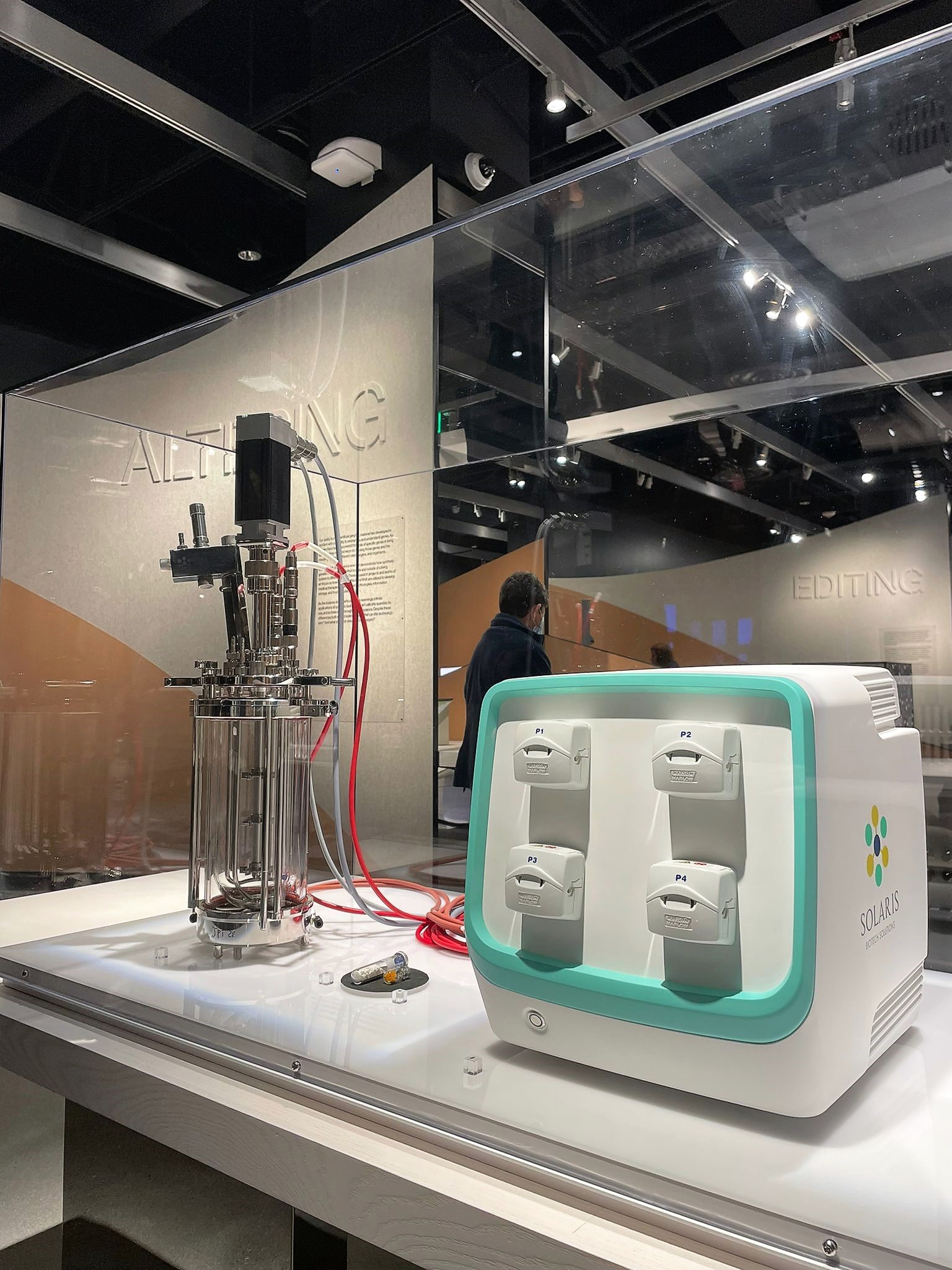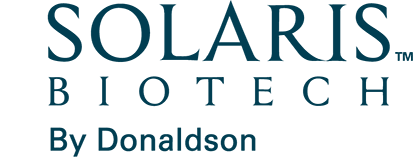Solaris for bioprocessing culture at the new MIT musem!
Cambridge, MA (USA), 3rd October 2022
We are proud to announce that the Massachusetts Institute of Technology displays a Solaris bioreactor in the new museum that has opened to the public on Oct. 2.
The MIT Museum is based in 314 Main Street, in Cambridge, MA right near the new opened Solaris' showroom.
It hosts collections of holography, technology-related artworks, AI, architecture, robotics, maritime history, photography art and surely of MIT and its discoveries in history.
There is a regular program of temporary special exhibitions, often on the intersections of art and technology.
In addition to serving the MIT community, the museum offers numerous outreach programs to school-age children and adults in the public at large. The widely attended annual Cambridge Science Festival was originated by and continues to be coordinated by the museum.
The museum was founded in 1971, as part of an exhibit project of the Office of the President and the Department of Humanities. Its purpose was to collect and preserve historical artifacts and documents scattered throughout MIT. It was renamed the "MIT Museum" in 1980, and began developing exhibits and educational programs for the MIT community as well as society at large.
Since 2005 the official mission of the MIT Museum has been, "to engage the wider community with MIT’s science, technology and other areas of scholarship in ways that will best serve the nation and the world in the 21st century."
It is such an honor having one of Solaris bioreactors showcased at the recently opened MIT Museum; most of all, it is our greatest satisfaction getting to know more of our clients’ amazing work and brilliant process.
Kudos to whom that used our fermenter to genetically alter microbes in order to produce bioplastic and fatty acid molecules.
"We at Solaris consider it a privilege to be part of the new exhibition of the MIT museum, a world excellence in the field of science and technology. Bioprocessing really can solve many problems that mankind is facing in the future and we testify our pride in being part of a mission-based, educational effort of this size.
Sometimes there is no acquired awareness about bioprocesses in cultivated cells and proteins, but is good to know that these processes are the bases of vaccines, many medicines, cosmetics, feed, fertilizers, even meat, honey and fish. The new MIT museum with its mission to bring science close to the public is a place to be for those who foster innovation for a more sustainable and healthy world.” - Matteo Brognoli, Managing Director
As the plate reports, our Jupiter fermenter was essentials for the MIT specialists in early rounds of experimentation needed to test the production capabilities of genetically altered microbes. It helped the scientists find the right conditions for the microbes to produce bioplastic or artificial fats.
At Solaris we are always honored to be in the new, innovative, amazing, sustainable world the humanity is creating.
Would you like to come and see it? Contact us!
Read more about our collaboration here!

.jpg)




